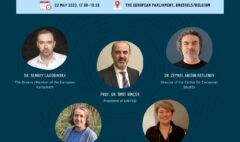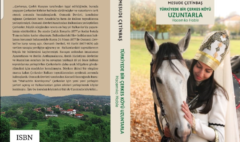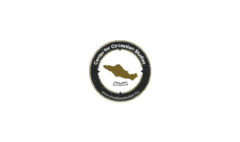Russia’s Invasion of Ukraine and Circassians
1 June 2022 2022-09-24 23:55Russia’s Invasion of Ukraine and Circassians
On 24 February, Russian Army launched the invasion of Ukraine from multiple directions, seemingly acting on the assumption that the Ukrainian people and their army would not resist and that the Russian Army would be able to occupy Kyiv swiftly to affect a regime change. Russian policy makers, along with the rest of the world, seem to be stunned by the tough, and mostly, successful resistance put up by the people and army of Ukraine. They are equally perplexed by the support the international community has offered Ukraine.
The Center for Circassian Studies (CCS) supports the legitimate right of the Ukrainian state to protect its people, and resist this aggression. The Russian leadership has now gone as far as to deny the Ukrainian people’s right to nationhood and to having its independent state. The CCS believes Circassians are best placed to understand what the Ukrainian people are going through at this juncture in their history, for Circassians themselves became one of the most dispersed peoples in the world following the occupation of and their expulsion from Circassia by the tsarist Russia in the 1860s.
What we understand from what has happened since February 24th is that Russia’s relations with the EU, NATO and the West will not be the same as before in any Russian administration headed by Vladimir Putin. Russia and its ruling elites are being subjected to economic sanctions at a level never been seen in history. This war has immensely changed the political, military and even the economic landscape in Europe and the wider world. Each and every state in the region is re-evaluating their military strategies and re-thinking their mid- to long-term strategies for their energy needs. Even though we cannot totally foresee the ultimate outcome of these developments, it does seem that for anyone involved there will be no turning back to the positions before 24 February.
It is possible to argue that even if this war had never been started, the probability of Russia’s going through significant structural changes in the near future would not be out of the question. As the country with the largest land mass in the world which also covers the lands of the native peoples of the North Caucasus, Eurasia and Siberia, Russia still has not properly de-colonised in the way the other empires of Europe have. Nor has it faced up to its past and moved on to become a modern democratic state. It has alienated the most creative and dynamic segment of its population, the younger generation, by not offering them a freer and more democratic country. The consistent demographic decline is becoming more acute as years go by. Russia has an economy that is almost completely reliant on sales of raw materials and natural sources and that it has not been able to keep up with the technological developments of our era in both the civilian and military spheres, which is shown clearly in its war efforts in Ukraine.
The current regime has turned Russia into a police state crushing down on Russian society and whatever is left of its democratic institutions in every conceivable way. It is also probable that this move towards radical Russian nationalism and authoritarianism will intensify in the immediate future. However, the recent Russian history shows that this is not sustainable in the long term.
This war has some other implications that are closer to home. Circassians living in the Russian Federation find themselves in a quagmire in that Circassian soldiers in the Russian army are killing and getting killed in the battlefields of Ukraine on the side of an occupying force, while Circassian civilians back home are having to live with the economic and social consequences of decisions the making of which they have no involvement in whatsoever. That Circassians might be able to maximise their collective gains and minimise their losses in this mayhem is only one of the many possible scenarios for the future of the North Caucasus and Russia. And for that to happen, there is a need for cool-headed but creative and outside-the-box thinking.
In summary, 95% of the world’s Circassians live in the Russian Federation and Turkey and it is highly likely that this war and its consequences will deeply impact them and their political expectations and future prospects. Therefore, the Center for Circassian Studies will continue to follow the developments in Ukraine and Russia very closely.





